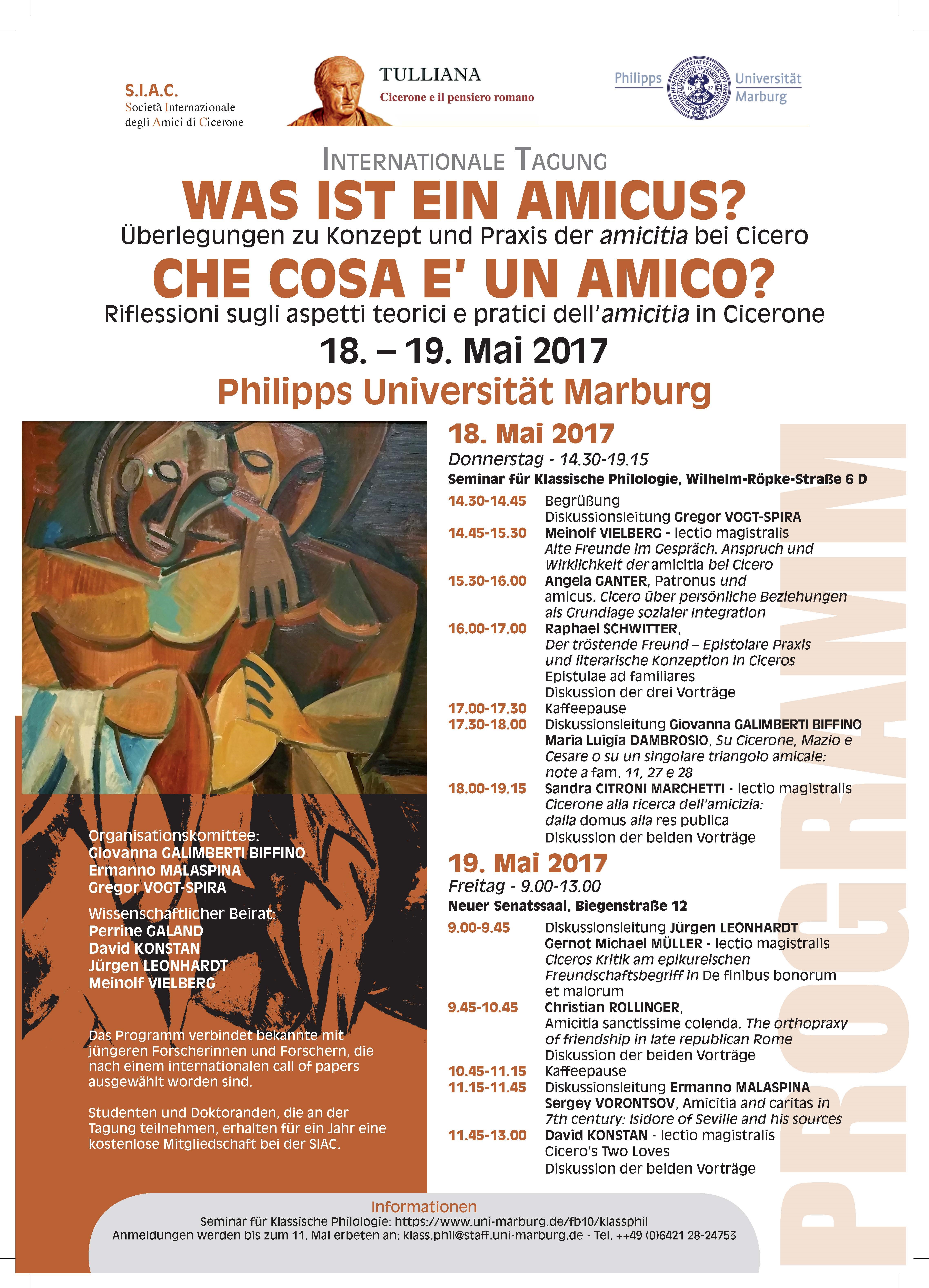Patronus und amicus. Ciceros Tränen als Grundlage sozialer Integration - Patronus and Amicus: Cicero's Tears as the Cornerstone of Social Integration
DOI:
https://doi.org/10.13135/2532-5353/2503Abstract
Schlüsselwörter: Cicero; patronus; orator; emotions.
Zusammenfassung: Warum überzeugten Tränen vor Gericht, obwohl jeder wusste, dass es sich dabei um eine Strategie handelte? Der Beitrag nimmt Ciceros Pro Plancio als Ausgangspunkt, um dessen Habitus als patronus zu diskutieren. Cicero betonte immer wieder, wie eng er mit seinen Klienten und Freunden verbunden sei. Bei seinen Auftritten bekannte er sich zum allgemein geteilten Ethos, das bei Patron-Klient-Verhältnissen und Freundschaften wahre Hingabe verlangte. Da amicitia und Patronage auf geteilten Werten beruhten, die letztlich auf das Ethos der republikanischen Elite verwiesen, musste jeder, der sich diesen Werten verpflichtet fühlte, Ciceros Argumentation folgen. Zumindest war es das, was seine rhetorischen Fähigkeiten auf rationaler und emotionaler Ebene forderten. Aber wie verhält es sich mit der Annahme, dass Redner selbst emotional bewegt sein mussten, wenn sie ihr Publikum überzeugen wollten? Der Beitrag argumentiert, dass Ciceros lebenslanger Einsatz als patronus ihn letztlich selbst glauben ließ, dass er der emotional aufgewühlte, hingebungsvolle patronus war, der er zu sein vorgab und der er wirklich war, wenn er vor Gericht trat.
Abstract: Why did tears in Roman courts convince though everybody knew them to be a strategy? By departing from the case of Pro Plancio, the paper discusses Cicero’s habits as a patronus. Cicero continued stressing his close personal links to his clients and friends. In his performances, he subscribed to the shared ethos of patronage and friendship demanding true dedication. As amicitia, and patronage, were rooted in shared values that ultimately referred to the ethos of the republican elite, everybody addicted to these values also had to follow Cicero’s argumentation. At least this is what his rhetorical skills demanded on a rational, and an emotional, level. But what about the assumption that orators had to be emotionally moved themselves when wanting to convince their audience? The paper argues that Cicero s lifelong acting as a patronus ultimately made himself believe that he indeed was the emotionally moved, truly dedicated patronus he pretended to be, and he really was when performing in court.
Downloads
Downloads
Published
How to Cite
Issue
Section
License
Authors who publish with this journal agree to the following terms:
- Authors retain copyright and grant the journal right of first publication with the work simultaneously licensed under a Creative Commons Attribution License that allows others to share the work with an acknowledgement of the work's authorship and initial publication in this journal.
- Authors are able to enter into separate, additional contractual arrangements for the non-exclusive distribution of the journal's published version of the work (e.g., post it to an institutional repository or publish it in a book), with an acknowledgement of its initial publication in this journal.


 Ciceroniana On Line is recognised by ANVUR (the National Agency for the Evaluation of the University System and Research) as a CLASS A journal for the Sciences of Antiquity, Philology, Literature and History of Art (
Ciceroniana On Line is recognised by ANVUR (the National Agency for the Evaluation of the University System and Research) as a CLASS A journal for the Sciences of Antiquity, Philology, Literature and History of Art ( The journal is included in DOAJ. The DOAJ listing of the journals is available at
The journal is included in DOAJ. The DOAJ listing of the journals is available at  The journal is indexed in
The journal is indexed in  The journal has been included in ERIH PLUS. The ERIH PLUS listing of the journals is available at
The journal has been included in ERIH PLUS. The ERIH PLUS listing of the journals is available at 

